Leading law firm cuts London back-office staff as it embraces AI

The law firm Clifford Chance is reducing the number of business services staff at its London base by 10%, with the increased use of artificial intelligence a factor behind the decision,The head of PwC has also indicated that AI may lead to fewer workers being hired at the accountancy and consulting group,Clifford Chance, one of the largest international law firms, is making about 50 roles redundant in areas such as finance, HR and IT with role changes for up to 35 other jobs, according to the Financial Times, which first reported the cuts,Greater use of AI and reduced demand for some business services are behind the cuts, the FT report said, as well as more work being done at offices outside Clifford Chance’s main UK-US operations, in countries such as Poland and India,A spokesperson for Clifford Chance said: “In line with our strategy to strengthen our operations, we can confirm we are proposing changes to some of our London-based business professional functions.
“The proposed changes could see the creation of new roles, changes to the scope of roles, revised team structures and in some cases a reduction in roles.”White-collar, or office-based jobs, are commonly cited as being vulnerable to advances in AI, the term for computer systems that perform cognitive tasks typically associated with human intelligence.Sign up to Business TodayGet set for the working day – we'll point you to all the business news and analysis you need every morningafter newsletter promotionAI is able to help employees perform some tasks faster – such as coding, research, scheduling meetings and reviewing contracts – and experts believe that companies will consider banking those productivity gains by hiring fewer people, or cutting staff numbers as systems become capable of handling certain tasks autonomously.Four in 10 (41%) bosses told a recent survey of 850 business leaders that AI was allowing them to cut the number of employees.The British Standards Institution poll spanned seven countries: the UK, the US, France, Germany, Australia, China and Japan.
The global chairman of PwC, Mohamed Kande, said the firm would no longer be hiring 100,000 people over a five-year period – a target set in 2021 – because of the advent of AI, indicating that entry-level jobs could be affected.“When we made the plans to hire that many people, the world looked very, very different,” he told the BBC.“Now we have artificial intelligence.We want to hire, but I don’t know if it’s going to be the same level of people that we hire – it will be a different set of people.”However, Kande added that PwC was struggling to recruit AI specialists.
“We are looking for hundreds and hundreds of engineers today to help us drive our AI agenda, but we just cannot find them,” he said.The UK head of PwC said in September that AI was “certainly reshaping roles” but that a drop in graduate recruitment at the firm this year was due to a slowdown in economic activity.
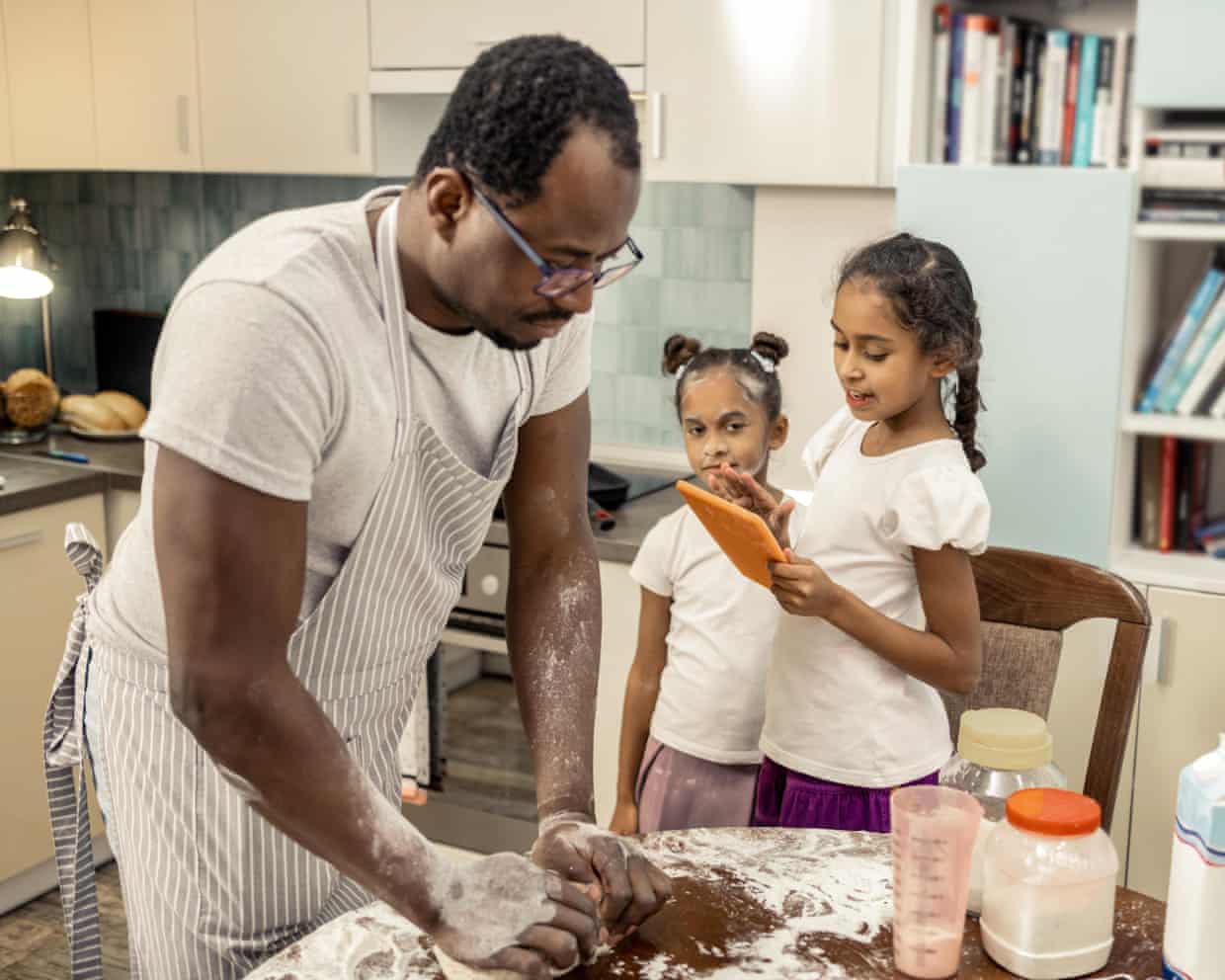
Tell us about a recipe that has stood the test of time
Recipes carry stories, and often when they have been passed down from generation to generation, these tales have a chapter added to them each time they are made. Family members concoct elaborate treats and seasoning mixes, which in some cases travel across oceans to end up on our dinner tables.We would like to hear about the recipes that have stood the test of time for you, and never fail to impress. Who first made it for you? Did you stick to the recipe that was passed down or have you improvised? What are the stories you associate with your favourite family recipe?Let us know and we will feature some of the best in Feast.Tell us about the recipe that has been handed down through generations in the form below
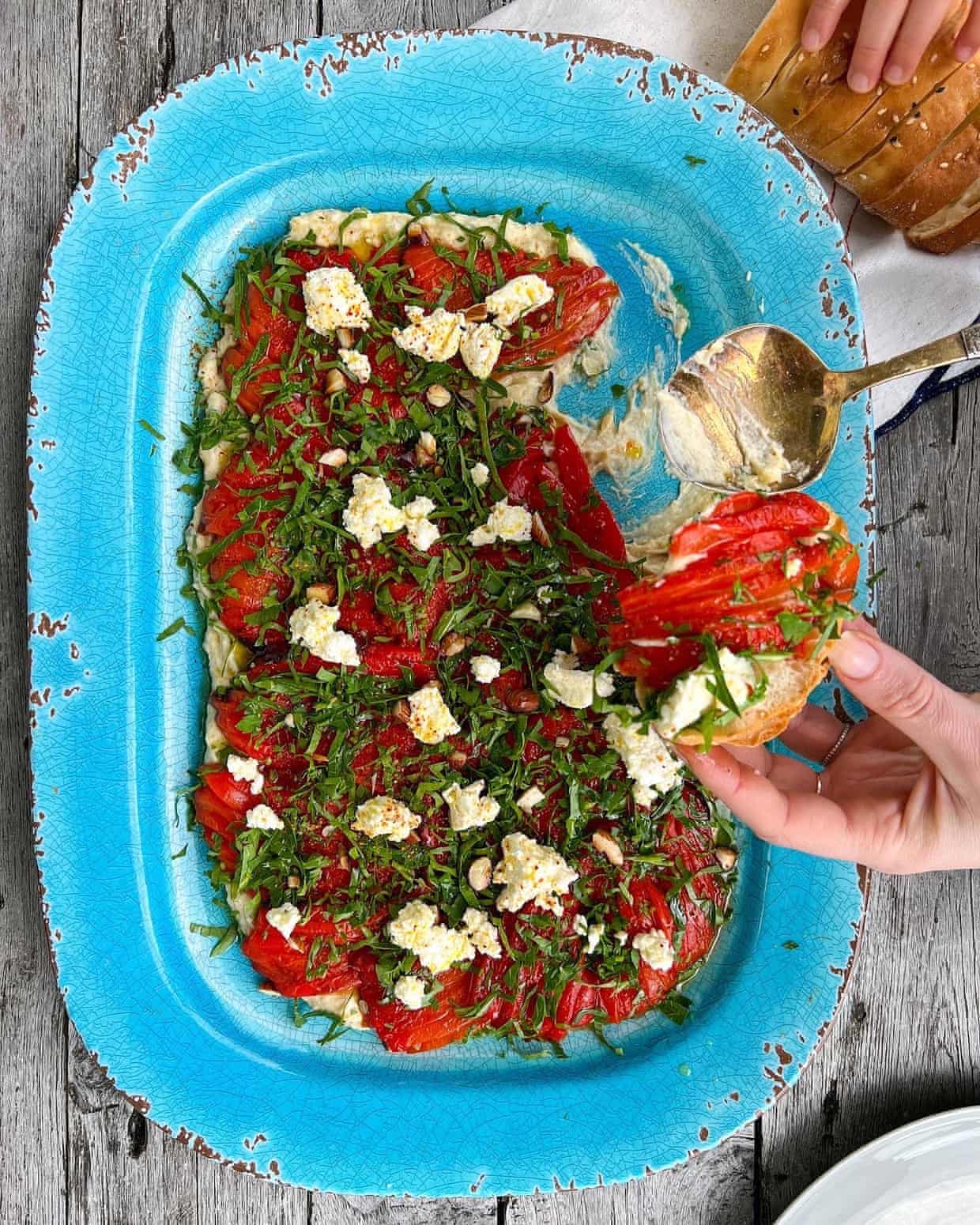
Alice Zaslavsky’s recipe for garlic red peppers with a creamy white bean dip, AKA papula
This week, I’ve been putting the finishing touches on an interview I recorded with legendary Australian cheesemaker Richard Thomas, the inventor of an ingredient you may not even realise is Australian: marinated feta, AKA “Persian fetta”. An unexpected stop on a trip to Iran in the 1970s gifted Thomas a chance meeting with a Persian doctor and his breakfast: fresh labneh with soft, still-warm lavash. It was a revelation. On his return, Thomas got to work creating a fresh cheese from goat’s milk (similar to chèvre) and from cow’s milk, marinated and preserved in oil, with an extra “t” to avert confusion with the Greek-style feta, that’s still being utilised by cooks and chefs right across the world.Persian fetta is a shapeshifter, capable of remaining both firm and steadfast when crumbled across the top of a platter or salad, and of yielding to a soft, velvety cream, enhancing all manner of dishes from pasta to pesto to whipped dips and schmears – and, of course, as a topping for that Aussie cafe staple, avocado toast

How to turn hazelnuts into a brilliant flour for cakes – recipe | Waste not
Each recipe in my cookbook Eating for Pleasure, People & Planet includes optional whole food ingredients such as rapadura sugar, emmer wheat and flaxseeds to boost nutrients and flavour, while also keeping things adaptable so you can use up what you already have in the cupboards. Writing a plant-based cookbook taught me new ways to save waste, and confirmed my belief that zero-waste cooking is whole food cooking. Aquafaba (the liquid from a tin of chickpeas or other beans), for example, is a powerful emulsifier that can replace eggs, especially when whisked with ground flaxseeds or chia. It’s a brilliant way of turning what we’d usually pour down the sink into cakes with remarkable lift and texture.When I was writing the dessert chapter of my cookbook, I wanted every recipe to offer new ways of making cakes more nourishing
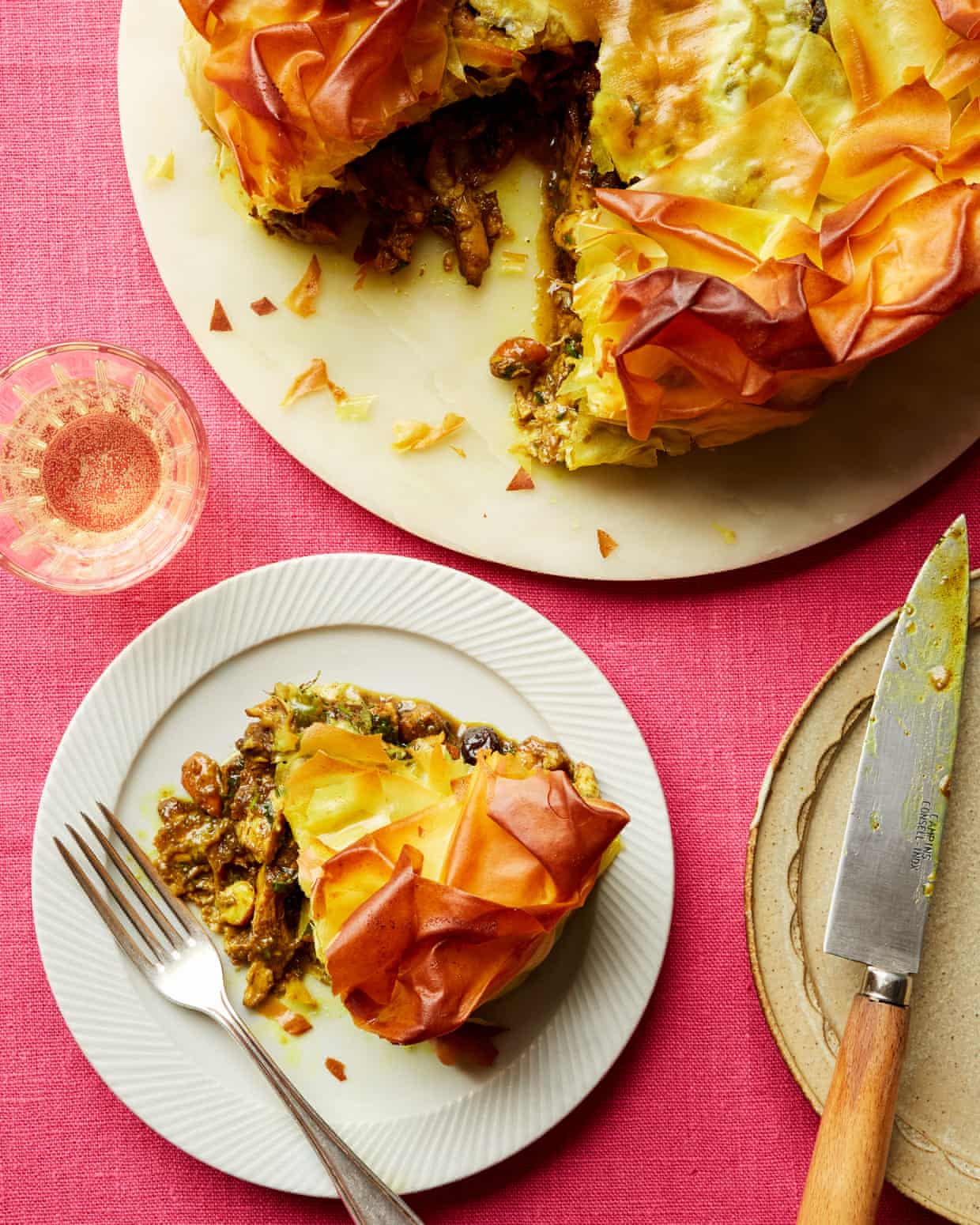
Fish, cheese or chicken? Ravinder Bhogal’s recipes for warming winter pies
When the temperature takes a nosedive, few things compete with a just-baked pie. Don’t be daunted by social media images of perfect, artistic ones; a pie will taste just as good whether it’s rustically homespun or exactingly decorated and carved. Ultimately, what is more important is the integrity of the ingredients (both the casing and the filling). As pastry or potatoes are such a large part of the equation, invest in the best, and make sure puff pastry is all butter and filo is generously lubricated with melted butter. And, if you’re serving your pie with mash, you want it lump-free, properly seasoned and enriched with butter and cream
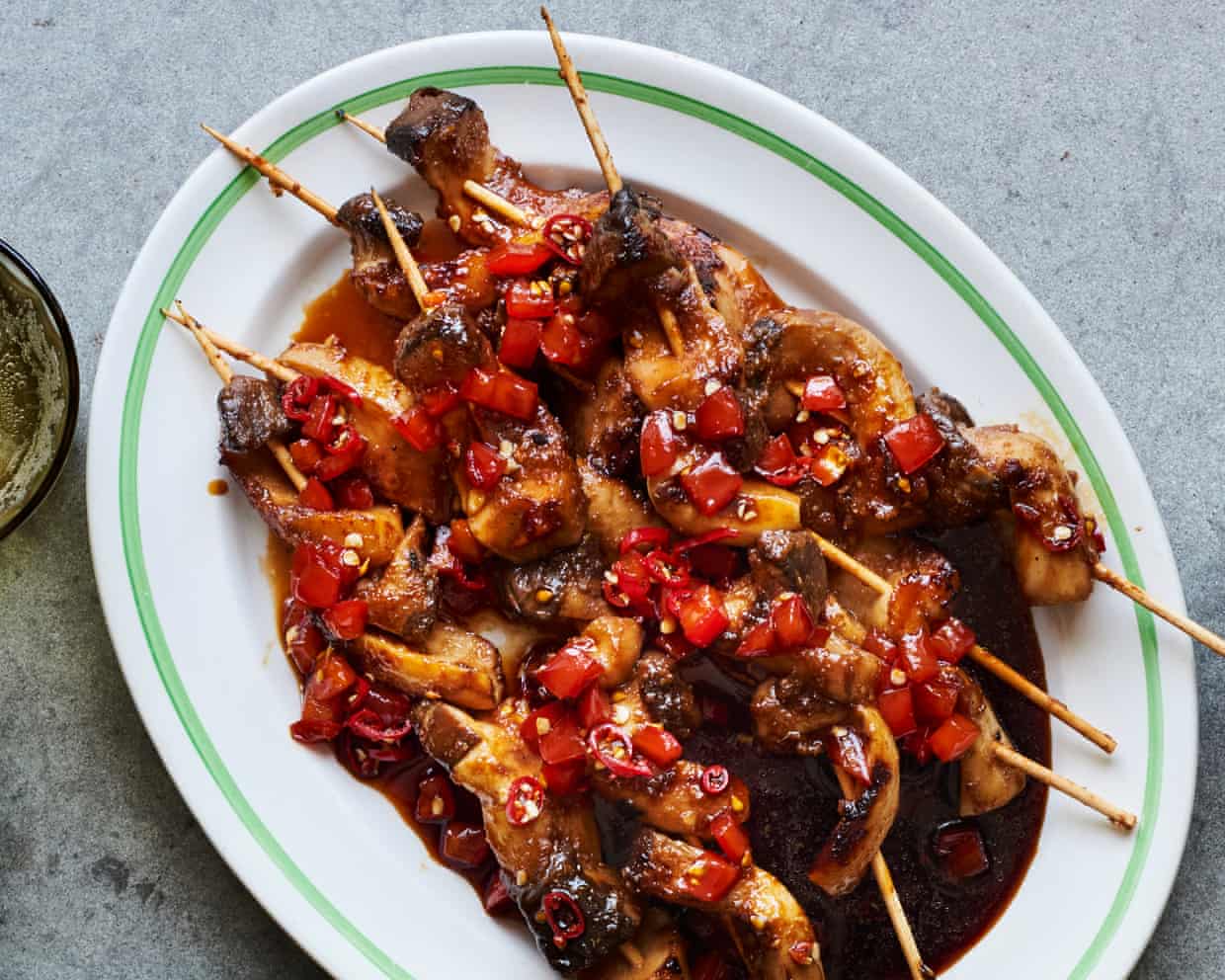
I’m vegetarian, he’s a carnivore: what can I cook that we’ll both like? | Kitchen aide
I’m a lifelong vegetarian, but my boyfriend is a dedicated carnivore. How can I cook to please us both? Victoria, by email “I have three words for you, Victoria,” says Anna Ansari, author of Silk Roads, who grew up in a predominantly vegetarian household: “Di si xian.” Typical of northern China, this stir-fry of aubergine, potato and peppers (otherwise known as the “three treasures”) is laced with soy, Shoaxing wine, white pepper, sugar, cornflour and, in Ansari’s case, doubanjiang. She also adds tofu (the fourth treasure, if you will) for “a rounded, one-pot/wok dinner” to eat with steamed rice. “It reminds me of being a teenager in Beijing, far from home and in need of warmth and comfort,” she says, and we could all do with some of that right now
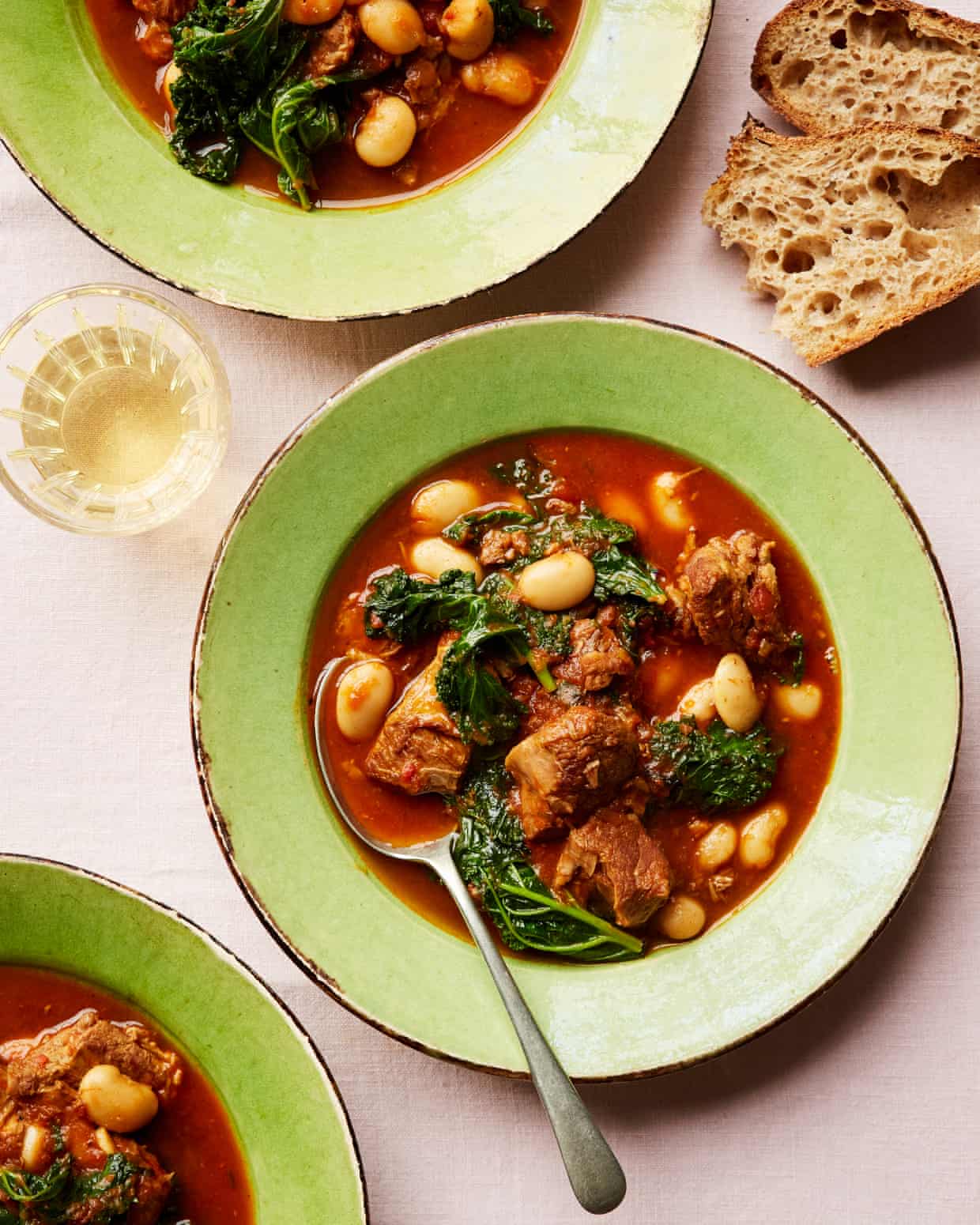
José Pizarro’s recipe for braised lamb and kale cazuela with beans
My mum, Isabel, has always cooked slowly. Life on the family farm was busy, so a pot of lamb would often be bubbling away while she worked and, by the time we all sat down for lunch, the whole house smelled incredible. November takes me straight back there. It is the month for food that warms you, dishes made to sit in the centre of the table and to bring everyone close. Lamb shoulder loves a slow cook, turning soft and rich, especially when cooked with alubias blancas (white beans) to soak up the sauce, while a good splash of oloroso gives it a deeper, rounder flavour than any red wine ever could

Your Guardian sport weekend: more Ashes drama, F1 in Vegas and the north London derby

England’s fab five bully Australia’s finest with faultless display of raw aggression | Simon Burnton

Alastair Cook and Becky Ives make best of TNT Sports’ shonky Ashes production | Barney Ronay

Wounded Wallabies on brink of unwanted 67-year record as French test awaits

Golovkin to be elected World Boxing president and lead buildup to 2028 Olympics

Brydon Carse hails ‘relentless’ England pace attack after thrilling Ashes start